Mark Martin and the Daytona 500 'Super Home Run' He Never Hit
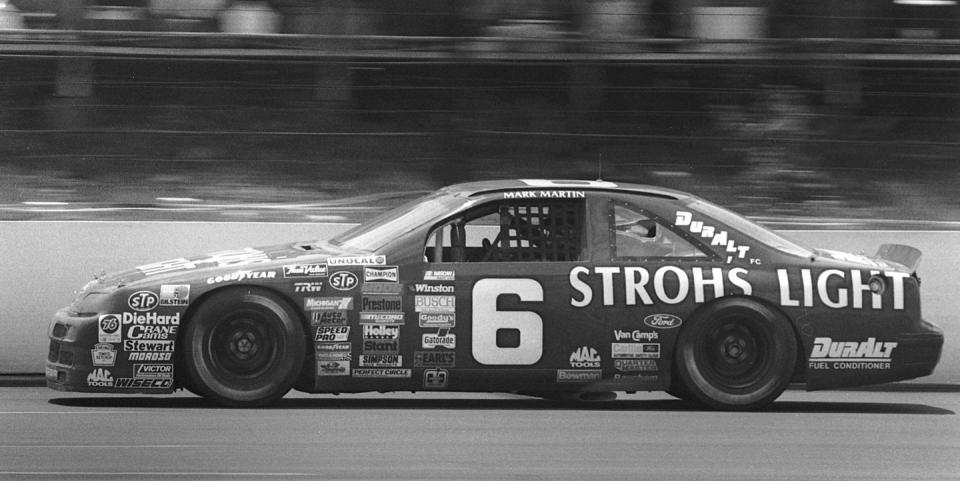
Mark Martin was a five-time NASCAR Cup championship runner-up, twice to Dale Earnhardt and once each to Jeff Gordon, Tony Stewart, and Jimmie Johnson.
In 1998, Martin was named one of NASCAR’s 50 Greatest Drivers.
Martin never won at Daytona Beach, but his 40 Cup victories included some at the sport’s most famous venues. All told, he won at 20 tracks.
It’s been suggested that Mark Martin is the best driver never to have won a NASCAR Cup Series championship. That’s mildly debatable since Junior Johnson and Denny Hamlin come to mind. But this much is beyond debate: the popular Arkansas native is among the sport’s best drivers without the ultimate trophy in his huge display case.
Consider his resume:
Martin was a five-time championship runner-up, twice to Dale Earnhardt and once each to Jeff Gordon, Tony Stewart, and Jimmie Johnson. He was third in points four times and had a 12-year run (1989-2000) of top-10 seasons with owner Jack Roush. That streak grew to 16 top-10 seasons in 24 years with Roush and, much later, Rick Hendrick.
He closed his career with three full seasons at HMS and four partial seasons with four other owners. He retired following the 2013 season, 32 years after coming to NASCAR as a 22-year-old Midwestern short-track star. His career-ending stat line was exemplary: 40 Cup Series victories, 49 Xfinity Series victories, and seven in the Camping World Truck Series. Just for the fun of it, he also won 13 IROC races and five championships.
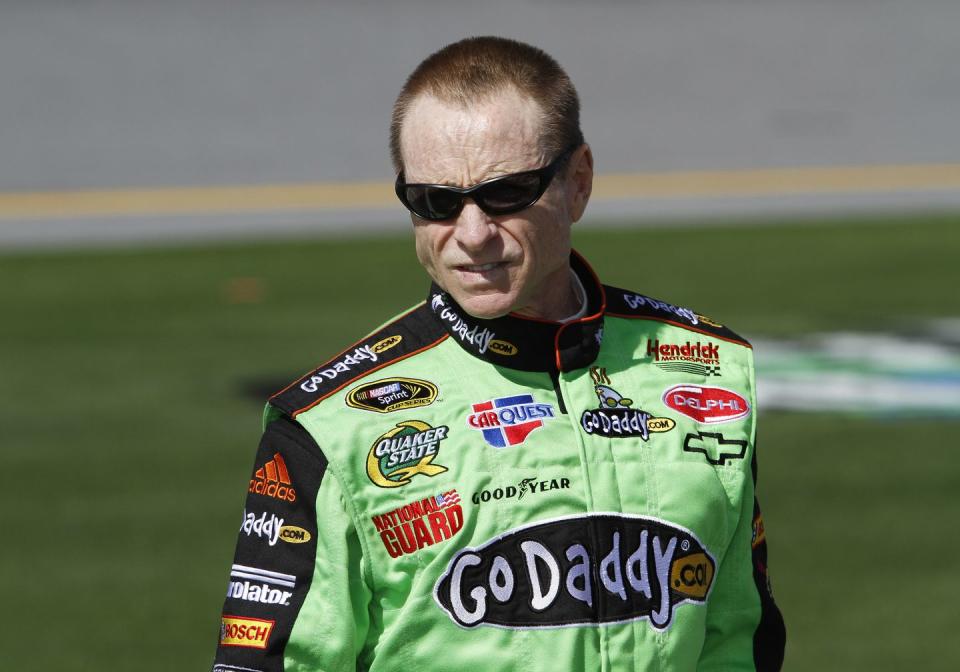
In 1998, Martin was named one of NASCAR’s 50 Greatest Drivers. In 2015, he was selected for the Motorsports Hall of Fame of America. Two years later, he went into the National Motorsports Press Association Hall of Fame. He called his 2017 summons from the NASCAR Hall of Fame (the “grandest Victory Lane of all”) the highlight of his career. He missed the cut in 2016, when Terry Labonte, Jerry Cook, Bobby Isaac, Curtis Turner, and Bruton Smith went in. He made it in 2017, along with Richard Childress, Rick Hendrick, the late Benny Parsons, and Raymond Parks.
“I never hit the super home run and didn’t win the Daytona 500,” Martin said during induction weekend. “And I didn’t win a championship. But I put a lot of emphasis on winning races. Let me tell you something: I’ve done more in my racing career than I ever expected. And I mean EVER expected! I’ll never look back and regret what DIDN’T happen. Instead, I’ll look back and remember what DID happen.”
As always…. pure class.
Martin was driving his motorcoach to Indianapolis in May of 2016 while HOF voters were gathering in Charlotte. He was parked and settled in, cleaning the bugs off the windshield when his phone rang. “It just blew up (with calls from informed well-wishers),” he said, shaking his head in wonderment. “I mean, my phone had never blown up like that. It was crazy, something Bottom of Formnot really expected. It was weird, so I wouldn’t have voted that way myself.
“I felt a little awkward, especially during the induction because I looked up at all the flags along the wall – my heroes, the people that built the sport. I wasn’t one of those guys and I was almost a little bit embarrassed. The Hall is certainly the crown jewel of my career. But I don’t think one trophy defines an athlete. He’s defined by his actions over a period of time, by what he accomplished over years. I don’t think a trophy makes the man.”
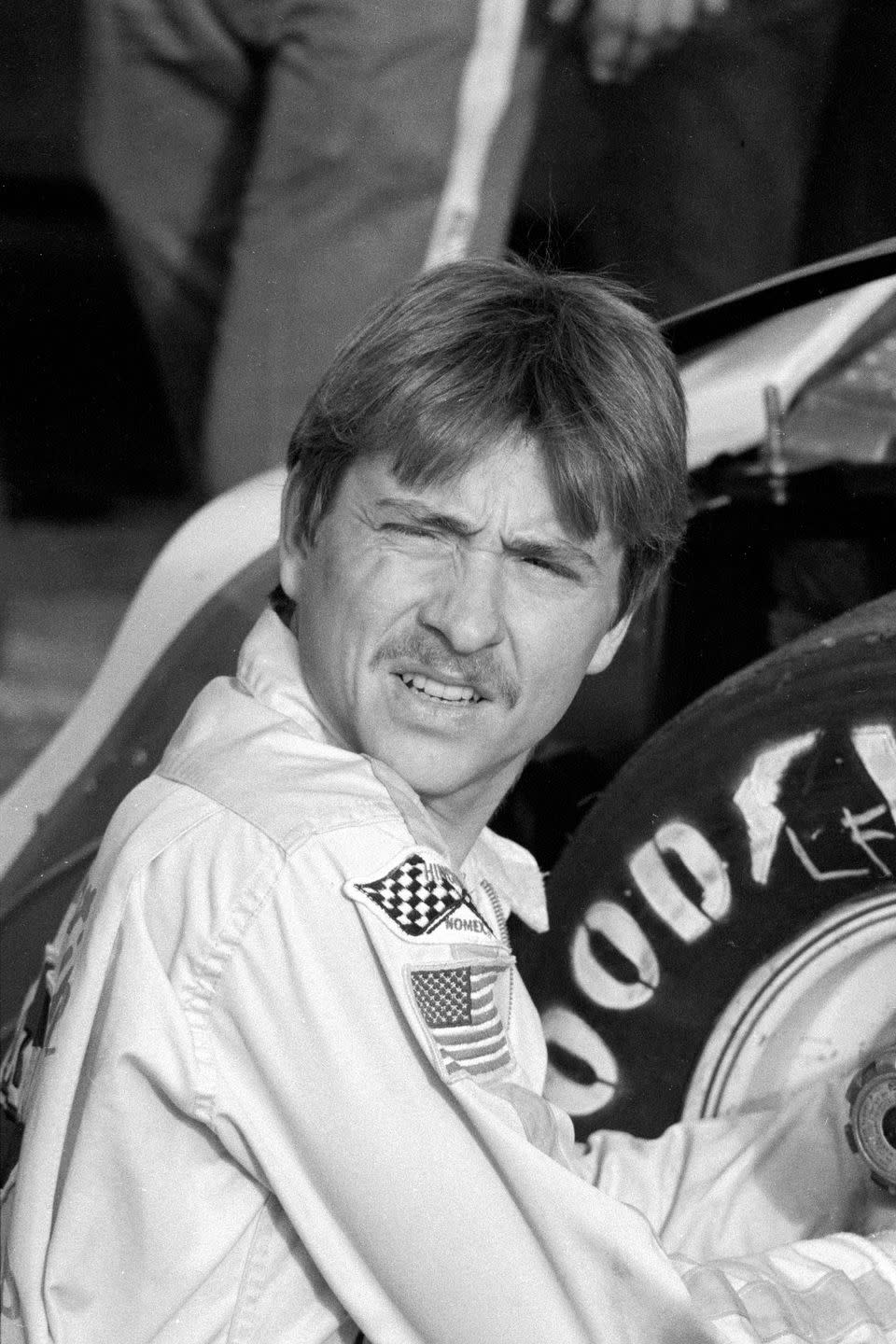
His emphasis on winning developed early, as a teenager on the dirt tracks of Arkansas. He went from those rough-hewn roots to the American Speed Association, where he won 22 features and four championships. Among the older, more-seasoned veterans he challenged: Bobby Allison, Alan Kulwicki, Dick Trickle, Jim Sauter, Rusty Wallace, and Butch Miller.
He moved to Cup in 1981, after the third of his four ASA titles. He struggled for consistency, running for eight owners (including himself) over five seasons. He spent all his money – racing on credit and juggling the books – trying to establish himself. His personal life was a mess until he met his future wife, Arlene. He had a drinking problem, was financially ruined, and found no joy in his life. Between 1981 and 1987 his prospects for a long and successful NASCAR career seemed beyond remote. He described himself as “an emotionally broken man.”
Everything changed in 1987. After watching Martin win those ASA championships, Allison recommended him as Roush’s startup driver for his 1988 Cup team. After several conversations, the deal was done and Martin finally had some professional and personal stability. Their discussions addressed all the important racing issues: personnel, team finances, chassis design, engine suppliers, testing commitments, and tire management. Never once did either man mention salary.
Typically, 1988 had its highs and lows. In addition to 10 top-10 finishes, Martin and Roush had 10 DNF’s. The 41st in their first Daytona 500 together was balanced by a second at Bristol several weeks later. There were more finishes in the 20’s and 30’s than in the top-15. That inconsistency largely doomed the No. 6 team to 15th in final points.
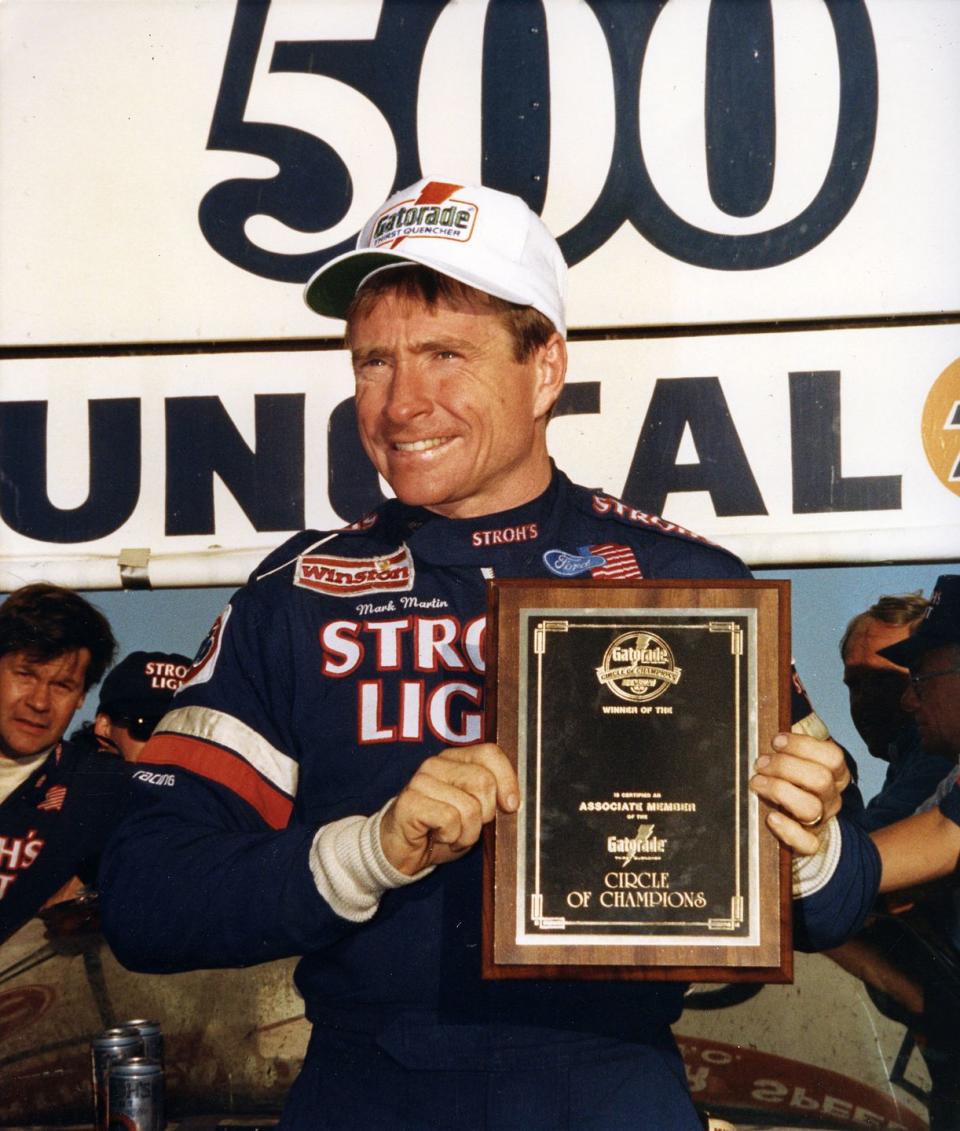
Things changed dramatically in 1989, capped by Martin’s breakthrough victory in October at North Carolina Motor Speedway near Rockingham. He started seventh, led five times for 101 laps and beat Rusty Wallace by just over three seconds. (A late-race two-tire pit stop gave him the track position he never lost again). The victory came in his 113th Cup start, his 56th with Roush. He also had six poles that year and 14 finishes in the top-5, almost half the 29-race schedule. The team finished third in points, the first of 13 seasons it finished that well.
His reaction to that first victory after five second-places finishes: “I can't believe it,” he said after the four-hour race. “I feel like my whole life is fulfilled. This is a dream come true because I’ve wanted it so bad for so long. I’m lucky to have the opportunity to work with Jack and (team leaders) Robin Pemberton and Steve Hmiel. Right now, I feel like I have it all.”
Many years and many victories later he said: “That first win made my life complete. It meant that everything I’d gone through and the hardship I’d endured personally for feeling like a failure the first time (in the early- to late-1980s) had been worth it all. But I’m definitely glad I went through that hardship because it helped shape who I became.”
But Wait…. There’s More
• Long-time Martin fans still bristle at the $40,000 fine and 46-point penalty NASCAR imposed for a small engine irregularity after winning the 1990 spring race at Richmond. He won six poles and two more races that year, but finished second to Earnhardt by 26 points in the championship standings.
• Martin never won at Daytona Beach, but his 40 victories included some at the sport’s most famous venues. Among them: Atlanta, Charlotte, Darlington, Talladega, Michigan, Watkins Glen, Sears Point, Martinsville, Phoenix, Loudon, Las Vegas, and Fort Worth. All told, he won at 20 tracks.
• After getting away from alcohol in the late 1980’s, Martin became the first Cup Series driver to undertake and maintain a rigorous program of exercise and physical fitness. He called it “a little advantage” over drivers who weren’t as fit.
• Odd but true: Martin’s favorite music genre is…. rap. He’s a big fan of (among others) Drake, Gucci Mane, Dr. Dre, Snoop, and 50 Cent.
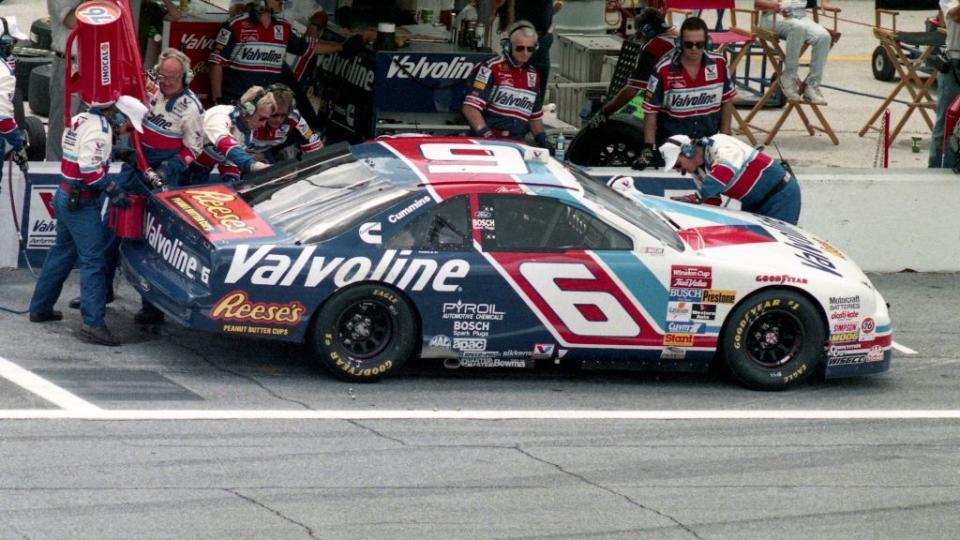

 Yahoo Autos
Yahoo Autos 